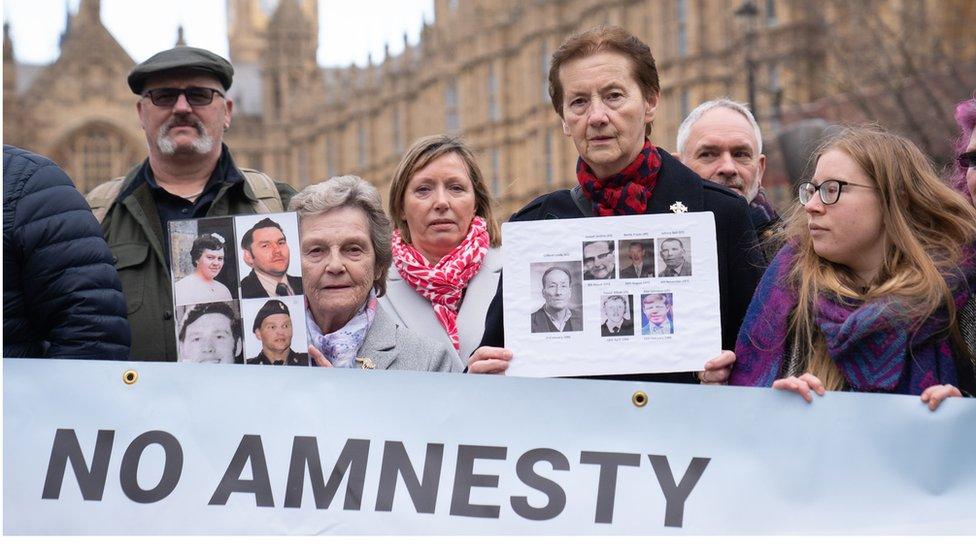Troubles legacy act: State bodies "running down the clock"
- Published
Legacy Act: Lord Hain accuses state bodies of 'running down clock'
Troubles-related inquests are being delayed by state bodies "running down the clock" until 1 May, a former Northern Ireland secretary has said.
The Legacy and Reconciliation Act states that inquests which have not concluded by that date will close.
A new fact-finding body will then be established and will provide amnesty for those who co-operate with investigations.
Lord Hain said inquests are "deliberately delayed so they lapse".
The legislation would likely restrict prosecutions for Troubles-related crimes and prevent victims' families from seeking fresh inquests or taking legal challenges, if not already lodged.
The UK act, which became law in September, has been widely opposed by victims groups and all the main political parties in Northern Ireland.
Those opposed have argued that the bill will remove access to justice for victims, and the bill faces at least 11 separate legal challenges.
The government has argued that the bill is an attempt to draw a line under the events of the past.
'Shameful'
In the House of Lords, former NI secretary Lord Hain asked Northern Ireland Office minister Lord Caine if he was not "extremely perturbed, indeed embarrassed, by the fact that state bodies appear to be openly running down the clock to 1 May when the due process that we set such store by in the United Kingdom will no longer apply in Northern Ireland, thanks to the shameful Legacy Act?"
He added: "Is this not a disgraceful way to treat victims of the Troubles who have suffered so much already?"
Lord Hain accuses state officials of an abject failure "to produce the necessary files in anything like a timely fashion continues despite the relevant state bodies being directed to do so".
'Vastly inferior'
The legislation will lead to the establishment of an Independent Commission for Reconciliation and Information Recovery (ICRIR).
The aim of this new organisation is to help families find out more about the circumstances of how their loved ones were killed or seriously injured.
The former Northern Ireland secretary challenged Lord Caine on how the new independent commission will "fare any better"?
Chris Heaton-Harris, the current Northern Ireland secretary, has said that the new independent commission offers "a real opportunity to deliver greater information, accountability and acknowledgement to victims and families".
However, Lord Hain described the processes due to be in place under the Legacy Act as a "vastly inferior process, done on the cheap".
A government spokesperson said on Wednesday that it "continues to assist Northern Ireland courts in good faith in relation to legacy matters".
"The ICRIR is supported by a legislative requirement of full disclosure by state bodies, and the power to compel witnesses to comply with its reviews.
"It will also be able to make findings - made public via a report - in a manner similar to an inquest.
"The act contains provisions allowing a coroner to request a review of a death by the independent commission, led by Sir Declan Morgan as chief commissioner, if the inquest has not been concluded via the coronial process by 1 May 2024.
"It is now working at pace to become fully operational, and in November 2023 published a paper regarding ideas for how it could approach investigations linked to advanced stage inquests."
The spokesperson added that the government "encourages stakeholders such as Lord Hain to engage directly with the independent commission to better understand its plans for implementation".


'What is in the act?'
The act offers conditional immunity from prosecution to individuals who co-operate with the new legacy body, the ICRIR.
Anyone not granted immunity could still be prosecuted.
The act bars investigations into Troubles incidents by any organisation except the ICRIR.
It introduced a ban on civil cases not lodged before May 2022 and inquests which have not reached the stage of findings by 1 May 2024 will cease.
The PPS has until 1 May 2024 to make decisions on legacy cases under consideration.
Any charges would be carried through to conclusion, as will cases already before the courts. Immunity is not available where prosecutions are occurring.

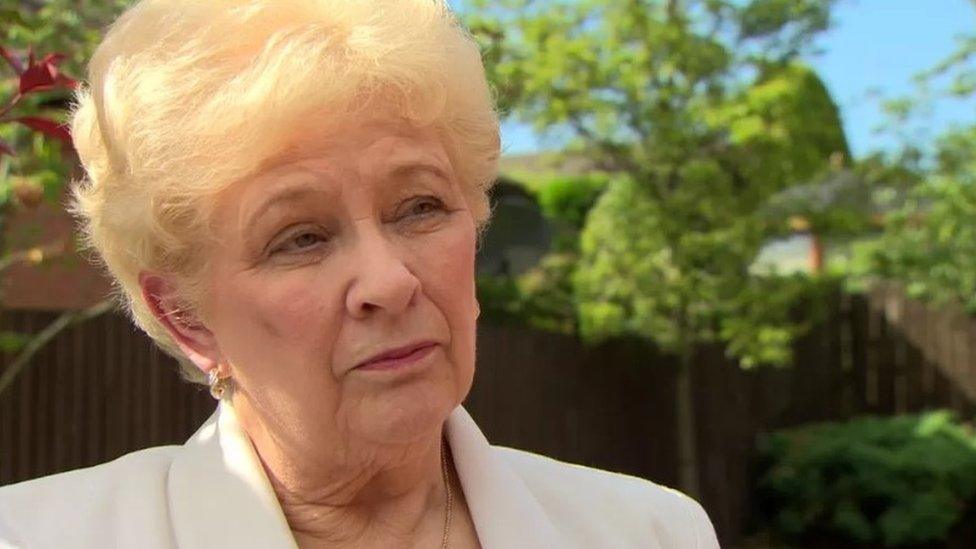
Baroness Nuala O'Loan was the first police ombudsman in Northern Ireland
Baroness Nuala O'Loan agreed with comments made by Lord Hain and added: "What is happening in Northern Ireland is outrageous at the moment and causes huge distress to victims."
The comments from peers came as the upper chamber debated changes to the Windsor Framework that emerged as a result of the deal between the government and the Democratic Unionist Party (DUP) to restore the Northern Ireland Assembly and devolved government in Stormont.
- Published14 February 2024
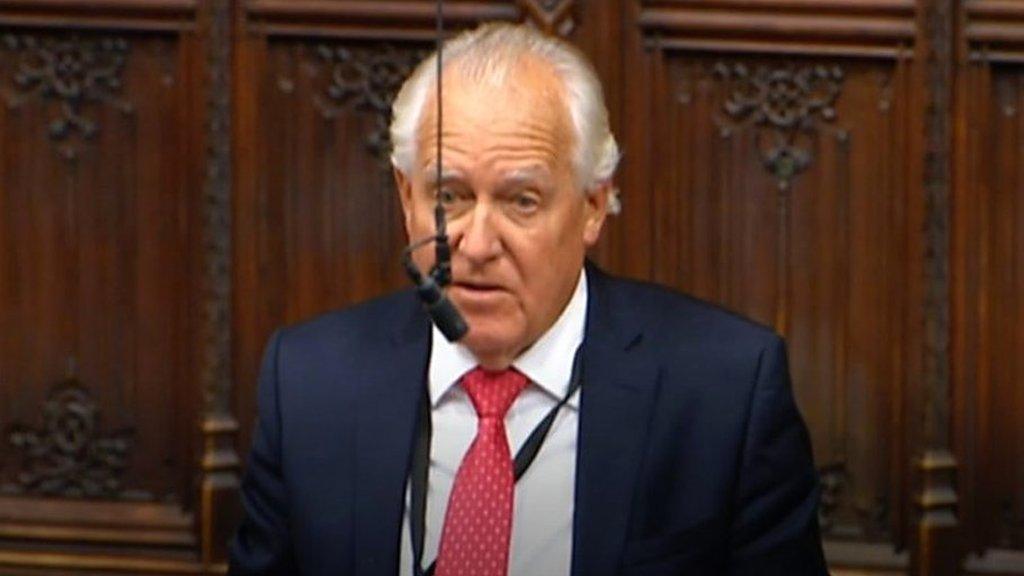
- Published14 May 2023
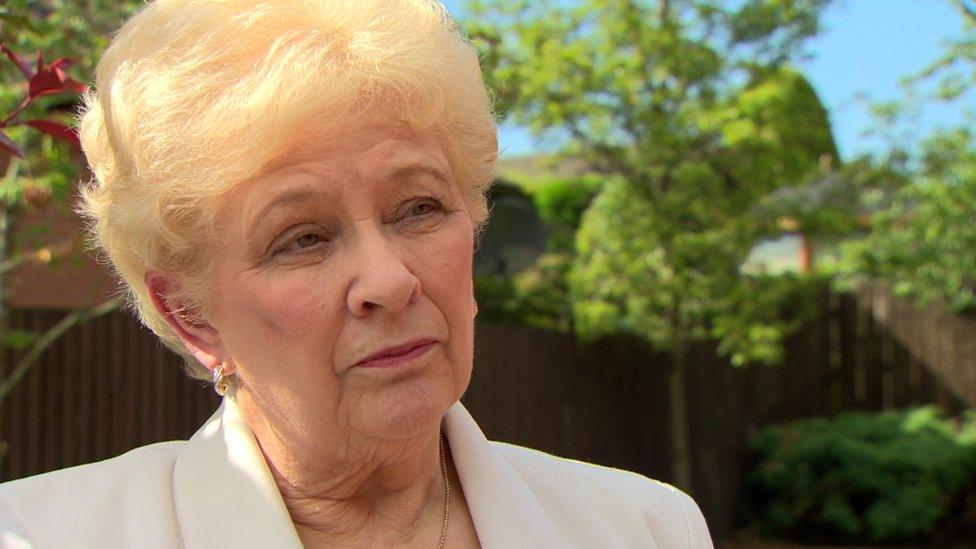
- Published21 December 2023

- Published19 September 2023
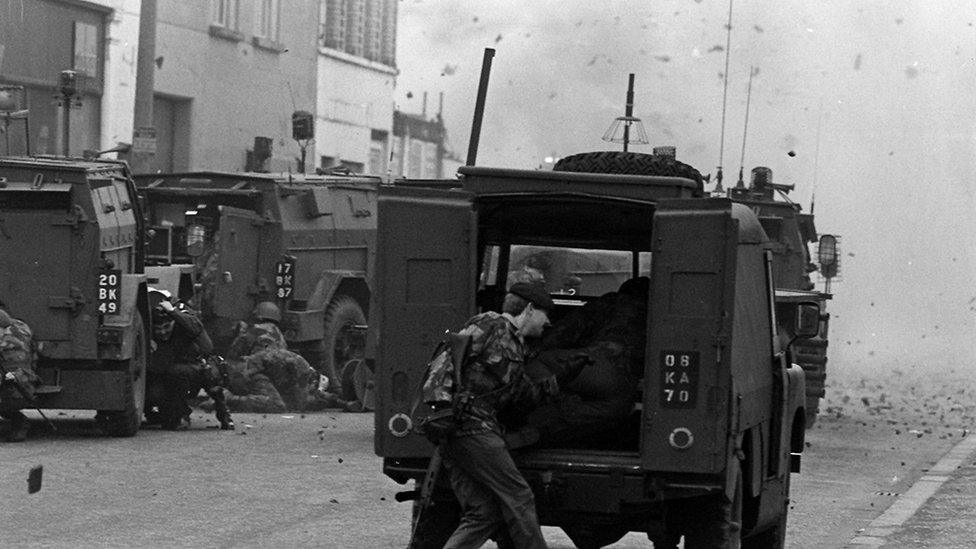
- Published5 September 2023
